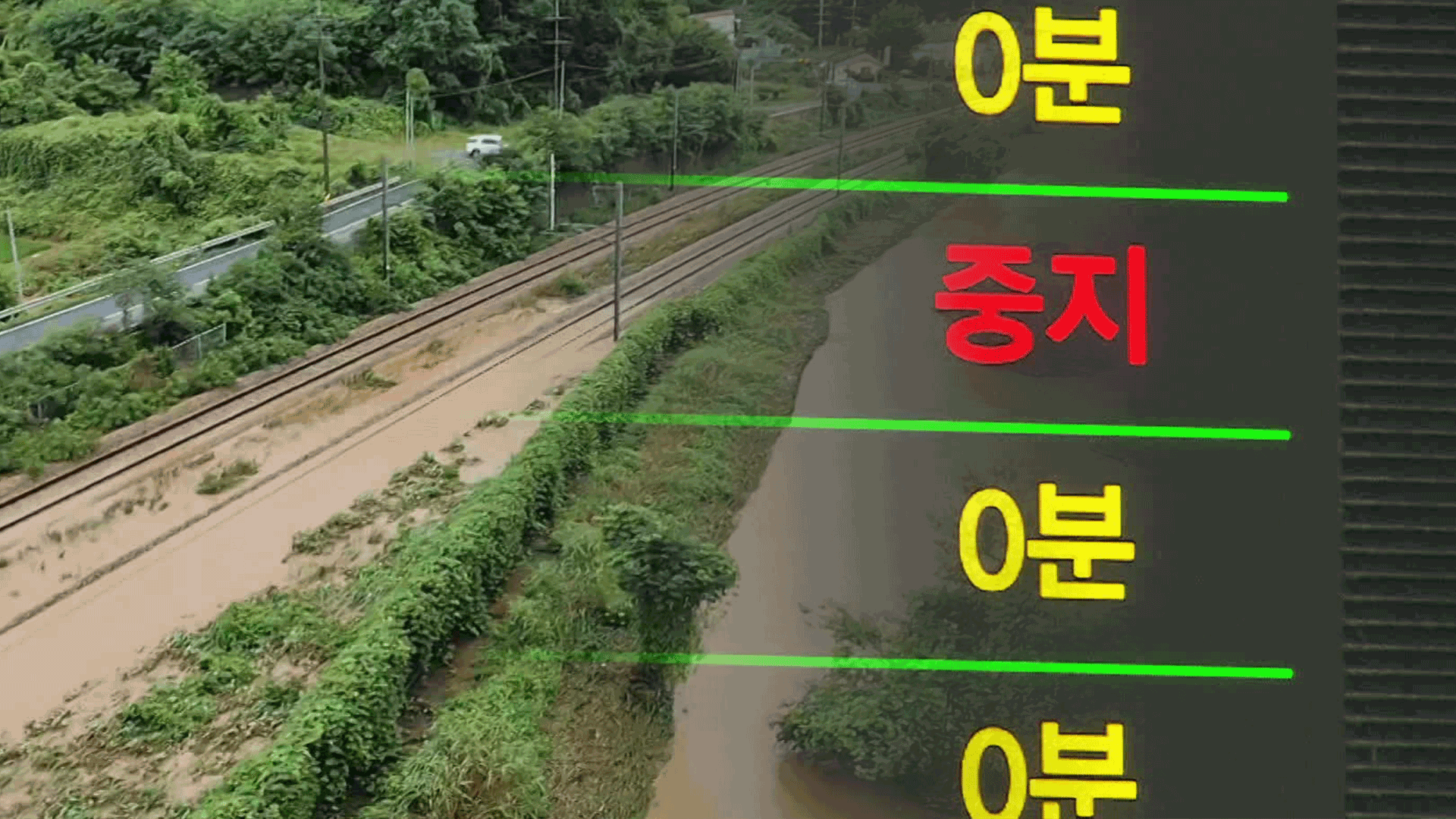[Anchor]
The United States has also engaged in exchanges with China.
It has granted permission for the export of NVIDIA's low-spec artificial intelligence semiconductors and has agreed to receive rare earth materials from China.
Beijing's Kim Min-jung reports.
[Report]
NVIDIA CEO Jensen Huang appeared at an exhibition in Beijing wearing traditional Chinese attire instead of his trademark leather jacket.
He praised China's AI industry capabilities and emphasized cooperation with China.
[Jensen Huang/NVIDIA CEO: "(Global AI models) developed here and shard openly have spurred AI developments worldwide."]
Following the news that the AI semiconductor chip H20, developed exclusively for China, will be exported again, it sends a message that the company will not abandon the Chinese market, the world's second-largest demand for AI chips.
At the same time, there is an indication that it will not allow Chinese companies to catch up.
There are analyses suggesting that while NVIDIA has been absent from the Chinese market, companies like Huawei have been accelerating their technological independence and expanding their market influence, which NVIDIA aims to counter.
U.S. Secretary of Commerce Howard Lutnick explained that the approval for the export of the H20 chip to China, just three months after export controls were imposed by the Trump administration, was a negotiation card to secure rare earth materials from China.
He also stated that since the H20 is not the highest-spec chip, it was deemed acceptable to export.
There are even expectations that this could prevent China's technological self-sufficiency.
[Howard Lutnick/U.S. Secretary of Commerce/U.S. CNBC: "So, you want to sell the Chinese enough that their developers get addicted to the American technology stack. And that’s thinking Donald Trump is on."]
In China, there is a welcoming atmosphere regarding the easing of U.S. technology sanctions.
This is Kim Min-jung from KBS News in Beijing.
The United States has also engaged in exchanges with China.
It has granted permission for the export of NVIDIA's low-spec artificial intelligence semiconductors and has agreed to receive rare earth materials from China.
Beijing's Kim Min-jung reports.
[Report]
NVIDIA CEO Jensen Huang appeared at an exhibition in Beijing wearing traditional Chinese attire instead of his trademark leather jacket.
He praised China's AI industry capabilities and emphasized cooperation with China.
[Jensen Huang/NVIDIA CEO: "(Global AI models) developed here and shard openly have spurred AI developments worldwide."]
Following the news that the AI semiconductor chip H20, developed exclusively for China, will be exported again, it sends a message that the company will not abandon the Chinese market, the world's second-largest demand for AI chips.
At the same time, there is an indication that it will not allow Chinese companies to catch up.
There are analyses suggesting that while NVIDIA has been absent from the Chinese market, companies like Huawei have been accelerating their technological independence and expanding their market influence, which NVIDIA aims to counter.
U.S. Secretary of Commerce Howard Lutnick explained that the approval for the export of the H20 chip to China, just three months after export controls were imposed by the Trump administration, was a negotiation card to secure rare earth materials from China.
He also stated that since the H20 is not the highest-spec chip, it was deemed acceptable to export.
There are even expectations that this could prevent China's technological self-sufficiency.
[Howard Lutnick/U.S. Secretary of Commerce/U.S. CNBC: "So, you want to sell the Chinese enough that their developers get addicted to the American technology stack. And that’s thinking Donald Trump is on."]
In China, there is a welcoming atmosphere regarding the easing of U.S. technology sanctions.
This is Kim Min-jung from KBS News in Beijing.
■ 제보하기
▷ 카카오톡 : 'KBS제보' 검색, 채널 추가
▷ 전화 : 02-781-1234, 4444
▷ 이메일 : kbs1234@kbs.co.kr
▷ 유튜브, 네이버, 카카오에서도 KBS뉴스를 구독해주세요!
- US trades AI chips for rare earths
-
- 입력 2025-07-17 01:23:04

[Anchor]
The United States has also engaged in exchanges with China.
It has granted permission for the export of NVIDIA's low-spec artificial intelligence semiconductors and has agreed to receive rare earth materials from China.
Beijing's Kim Min-jung reports.
[Report]
NVIDIA CEO Jensen Huang appeared at an exhibition in Beijing wearing traditional Chinese attire instead of his trademark leather jacket.
He praised China's AI industry capabilities and emphasized cooperation with China.
[Jensen Huang/NVIDIA CEO: "(Global AI models) developed here and shard openly have spurred AI developments worldwide."]
Following the news that the AI semiconductor chip H20, developed exclusively for China, will be exported again, it sends a message that the company will not abandon the Chinese market, the world's second-largest demand for AI chips.
At the same time, there is an indication that it will not allow Chinese companies to catch up.
There are analyses suggesting that while NVIDIA has been absent from the Chinese market, companies like Huawei have been accelerating their technological independence and expanding their market influence, which NVIDIA aims to counter.
U.S. Secretary of Commerce Howard Lutnick explained that the approval for the export of the H20 chip to China, just three months after export controls were imposed by the Trump administration, was a negotiation card to secure rare earth materials from China.
He also stated that since the H20 is not the highest-spec chip, it was deemed acceptable to export.
There are even expectations that this could prevent China's technological self-sufficiency.
[Howard Lutnick/U.S. Secretary of Commerce/U.S. CNBC: "So, you want to sell the Chinese enough that their developers get addicted to the American technology stack. And that’s thinking Donald Trump is on."]
In China, there is a welcoming atmosphere regarding the easing of U.S. technology sanctions.
This is Kim Min-jung from KBS News in Beijing.
The United States has also engaged in exchanges with China.
It has granted permission for the export of NVIDIA's low-spec artificial intelligence semiconductors and has agreed to receive rare earth materials from China.
Beijing's Kim Min-jung reports.
[Report]
NVIDIA CEO Jensen Huang appeared at an exhibition in Beijing wearing traditional Chinese attire instead of his trademark leather jacket.
He praised China's AI industry capabilities and emphasized cooperation with China.
[Jensen Huang/NVIDIA CEO: "(Global AI models) developed here and shard openly have spurred AI developments worldwide."]
Following the news that the AI semiconductor chip H20, developed exclusively for China, will be exported again, it sends a message that the company will not abandon the Chinese market, the world's second-largest demand for AI chips.
At the same time, there is an indication that it will not allow Chinese companies to catch up.
There are analyses suggesting that while NVIDIA has been absent from the Chinese market, companies like Huawei have been accelerating their technological independence and expanding their market influence, which NVIDIA aims to counter.
U.S. Secretary of Commerce Howard Lutnick explained that the approval for the export of the H20 chip to China, just three months after export controls were imposed by the Trump administration, was a negotiation card to secure rare earth materials from China.
He also stated that since the H20 is not the highest-spec chip, it was deemed acceptable to export.
There are even expectations that this could prevent China's technological self-sufficiency.
[Howard Lutnick/U.S. Secretary of Commerce/U.S. CNBC: "So, you want to sell the Chinese enough that their developers get addicted to the American technology stack. And that’s thinking Donald Trump is on."]
In China, there is a welcoming atmosphere regarding the easing of U.S. technology sanctions.
This is Kim Min-jung from KBS News in Beijing.
-
-

김민정 기자 mjnews@kbs.co.kr
김민정 기자의 기사 모음
-
이 기사가 좋으셨다면
-
좋아요
0
-
응원해요
0
-
후속 원해요
0















이 기사에 대한 의견을 남겨주세요.